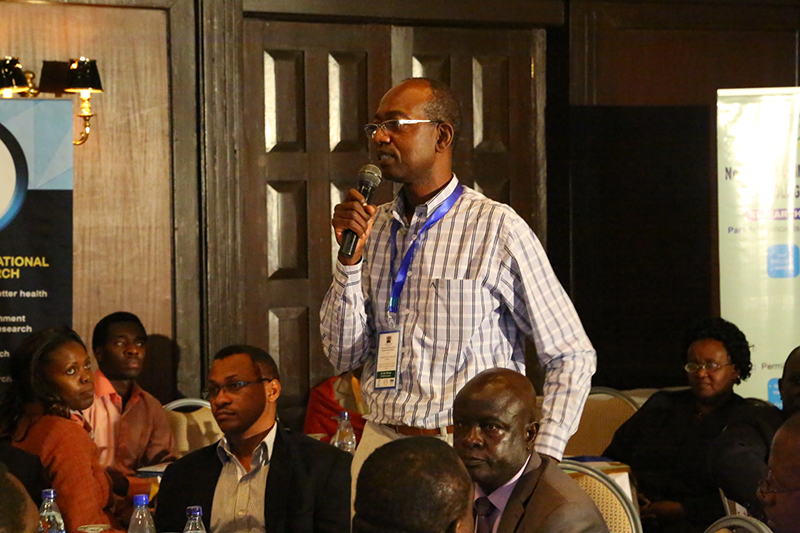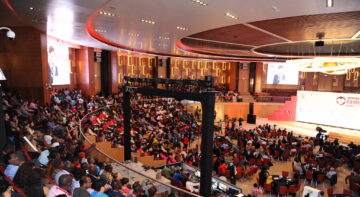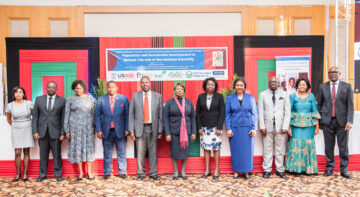Blogs

The African Institute for Development Policy (AFIDEP) and the Institute of Development Studies (IDS) UK will host a Research Uptake Symposium and Training Exchange in Nairobi between February 9 and 12, 2015.
This symposium brings together researchers, communications professionals, and policymakers to discuss emerging issues in the utilisation of research in government decisions, also referred to as “Research Uptake’.
The focus on the role of research in government decisions has increased over the last two decades, partly driven by the concerns that research funders have had on returns to their investments in generating research. The term “Research Uptake’ has therefore emerged over the last decade, and there is a lot of interest among researchers, government officials and communications professionals to understand this term, but also “how’ research uptake actually happens or fails to happen.
The symposium, therefore, aims to provide a platform where policymakers, researchers, communications professionals, and others interested in research uptake will share and exchange knowledge and lessons with a view to improving efforts that enable research use.
Research is perhaps more critical in Africa’s development choices than anywhere else. Given Africa’s limited resources for development, basing development decisions on research evidence is critical to ensure that areas with most need receive the requisite resources.
Therefore holding this premier conference in Africa gives the continent the impetus to put efforts in place that ensure that research plays an important role in governments’ development decisions.
With this conference, Africa can consolidate its past and on-going efforts on ensuring research use into a momentum for increased focus on research in future development decisions and programmes.
The Conference
The conference, funded by the UK Government, will comprise two main events “ a symposium that will discuss various topics in research uptake, and a training exchange that will feature various training workshops in the wide-ranging skills required for enabling research use.
The symposium will feature sessions such as “exploring barriers to research uptake’, “the role evidence synthesis plays in policy formulation’, “technological innovations, media and communications in research uptake’, among others.
During the session on “Exploring the Barriers to Research Uptake’, selected experts will share their knowledge and expertise on the factors that hinder research use by government officials. This will be followed by discussions with conference participants, particularly on ways of overcoming the identified barriers to research use.
The session on “The role evidence synthesis plays in policy formulation’ will feature leading research and policy experts, who will share their experiences and opinions on what kind of research gets used or should be used in government decisions.
Some experts will be of the view that the kind of research that should inform policy should include findings from many different studies and not just one study, whereas others will illustrate the view that single studies can still, and do, inform government decisions.
Key panellists in this session include Prof Mike English, Cochrane Specialist, Kenya Medical Research Institute (KEMRI) “ Wellcome Trust; Suleiman Asman, Country Director, Innovations for Poverty Action, Kenya; Kwame Owino, CEO, Institute of Economic Affairs (IEA) and Dr John Omiti, Executive Director, Kenya Institute of Public Policy Research and Analysis.
The session on “Technological Innovation, Media and Communications in Research Uptake’ will showcase a variety of emerging technological innovations and skills in enabling and supporting research uptake by governments. This session will draw from participant submissions and expert panellists.
Another interesting session will be on “Research Uptake case studies and country explorations “ best practices and notable failures’. This session will draw from selected participant submissions to illustrate their successes and failures with research uptake efforts.
More information on the research uptake conference (the ResUp MeetUp Symposium and Training Exchange) can be found at: http://www.resupmeetup.net/
Dr Eliya Zulu, Executive Director, African Institute for Development Policy (AFIDEP)
Related Posts





